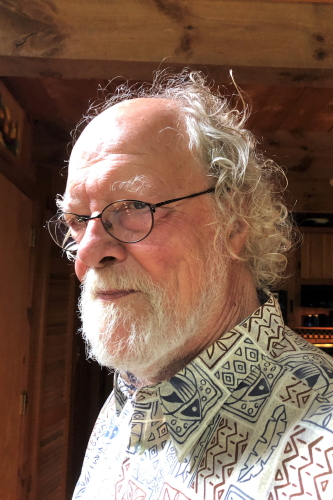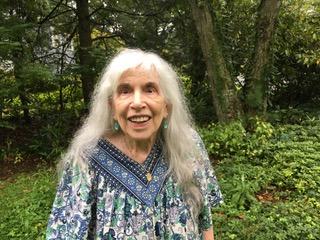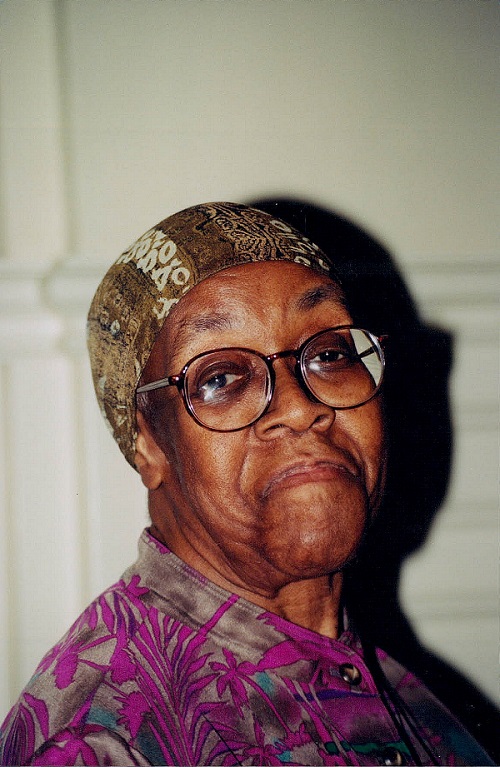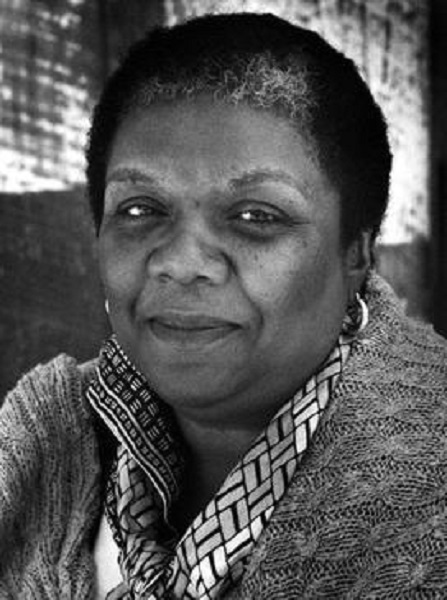Our Poetry Editor, Irene Willis, is on vacation until after the holidays
Category: Poetry Monday
POETRY MONDAY: NOVEMBER 6, 2023

David Giannini
Good morning, everyone! As we did last month, we’re sharing some readers’ favorites for those who may have missed them the first time. David Giannini last appeared here in 2022. Since then, his latest book, Already Long Ago (Dos Madres, 2023) is already garnering high praise.
–Irene Willis
Poetry Editor
A Woman in the Asylum on the River
Even in my mother’s womb
I sensed that
I could not escape without help; that there Continue reading POETRY MONDAY: NOVEMBER 6, 2023
Poetry Monday: September 4, 2023
Good morning, everyone: Soon you’ll be sending children or grandchildren off to school, and some of you will be off to school yourselves, as teachers or students — and in some cases, as it was for me, both.
Those of us who love poetry are always ready to read and learn more about it. I know that’s why, among all the collections on my shelves are books about fundamentals. This morning I’d like to tell you about some of those I have recently found most valuable.
First is a recent little book that I will never part with: Musical Tables by former Poet Laureate of the United States, Billy Collins (Random House, 2022). As critic Alice Fulton has said, he “puts the fun back in profundity.” This book of short, witty poems will bear — in fact, invite — repeated re-readings. His own love of poetry, he tells us, might have begun with nursery rhymes; I know that mine did.
Which is why, whether you have young children at home or not, I invite you to go back to the enduring classics of your childhood: Mother Goose, A Child’s Garden of Verses, those fairy tales with crayon-colored names, e.g., The Yellow Fairy Book, The Red Fairy Book — and a copy of Bible Stories for Children — if you can find them. There is also a wonderful, small pocket-sized copy of Emily Dickinson (Modern Library, 2004), with an introduction by Collins himself. It’s in my handbag now, and I’ve read and re-read it in many a doctor’s or dentist’s waiting-room. I’m now rushing to put it away, for I never want to be without it — nor, I hope, will you. Continue reading Poetry Monday: September 4, 2023
Poetry Monday: August 7, 2023

Merle Molofsky
Good morning, everyone. We first met Merle Molosky on a cold winter’s day, and now, here we are, in full — and very hot or very rainy — summer!
Merle Molofsky, MFA, NCPsyA, is a psychoanalyst in private practice. She serves on the faculties of the Training Institute of NPAP and of Harlem Family Institute (HFI), and the Advisory Council of HFI.
Ms. Molosky is a member of the Editorial Board of The Psychoanalytic Review and of The International Journal of Controversial Discussions. In 2012 she received the Gravida Award in Poetry from the National Association for the Advancement of Psychoanalysis (NAAP). She is also a playwright and writer of fiction. Her play, Koolaid, directed by Jack Gelber, was produced at Lincoln Center, and her novel, Streets 1970 (2015) and short-story collection, Necessary Voices (2019), both of which had introductions by Gerald J. Gargulio, were published by IPBooks.
It’s my pleasure to share the following three poems by Merle Molosky:
-IRENE WILLIS
POETRY EDITOR
ANCESTORS
All my ancestors
were once children Continue reading Poetry Monday: August 7, 2023
Poetry Monday: May 1, 2023
Poetry Monday: April 3, 2023

Remembering Gwendolyn Brooks
Good morning, everyone.
Some of our regular readers may remember meeting Gwendolyn Brooks in this column back in 2015, but it seems appropriate to remember her once again, as she shouldn’t ever be forgotten. Also, this, as you may know, is National Poetry Month here in the U.S., a time when many readers may, we always hope, at least glance through a book of poetry or even take one up to the cash register. It’s also a year when, looking back, we realize how many fine poets, well-known and lesser-known, we have lost recently – almost an entire “greatest generation.” Now I would like to look back a bit further, to share some very personal memories of a poet who became much more to me than someone I encountered only on the page.
First, a brief biography. Born in Topeka, Kansas in 1917 and with no more than a high school and junior college education, she became the first African-American to win a Pulitzer Prize, which was awarded for her book, Annie Allen. Later she was one of the only women and the first Black woman to become Consultant in Poetry to the Library of Congress, a position now known as Poet Laureate.
But here’s what I remember, other than the powerful impact her poems always had on me. My husband and I driving down to New York City from our home n Princeton, New Jersey, to pick her up at Penn Station in the mid nineteen-eighties. At that time I was curating a reading series for the Arts Council of Princeton (the town, not the University). She was to be our next reader, and we were sharing her with the university. She had taken the train from Chicago, because she would never fly.
What I hadn’t realized is how much she would have with her, but I soon found out when I trotted down to get her as her train doors opened. I picked up her two suitcases and almost fell to the floor. “Books!” she said, when I asked her what was in them. “I always travel with books.” Later I learned that she also traveled with peanut butter and crackers, in case her hosts forgot that she should be fed as well as feted, which of course we didn’t.
I had reserved a room for her at the Nassau Inn, and after we checked in, went up to help her get settled and was surprised at how small the room was. She gave a marvelous reading that evening, and I called her the next morning to thank her again and to apologize for the room. “Oh, but I love this little room,” she said, explaining that she was tucked up cozily in bed, reading and surrounded by books. We said goodbye, and she was picked up by a representative from the university group for her afternoon reading.
The next time I saw her was at the Dodge Poetry Festival in September 2000, which at that time was still held in Waterloo, New Jersey. She was the featured reader and, because the festival was especially targeted but not exclusively attended by an audience of high school teachers and students, she began by reading poems that had been written by youngsters. She extolled them, and insisted that we listen carefully to how much these young people had achieved, before she went on to read her own poems. This was not an act. This was who she was, as I learned more forcefully a few weeks later, when she was the first poet to read in a new series I curated with local poet and English department chair Hilary Russell at Berkshire School in Sheffield, Massachusetts.
This time she came by both train and bus. My husband and I picked her up in Pittsfield and put her up at a small bed and breakfast near the prep school campus. Again I went upstairs to settle her in, and found the room to be quite chilly. Since I lived in nearby Great Barrington then, I drove home to get her a sweater of mine-a warm one that wrapped around her at least twice. She seemed to be much more frail than I had remembered.
Her reading was the next evening, and it was preceded by a question-and-answer session with teachers and students in a lecture room that afternoon, which as customary for our visiting poets. That night she again read brilliantly and was given a standing ovation by a full house of mostly white prep school boys in navy blazers. The poem they seemed to respond to most powerfully was “The Mother,” which can move even those who don’t agree with its premise to tears. Billed as lasting from seven to nine p.m., with the reading followed by a q. and a. and book-signing, that evening lasted till 11:30 pm. as students queued up to talk to her and get their books signed. I discreetly tried to pry her away, because she was 83 and frail, had a reading at Smith College in Northampton the next day and I felt responsible for getting her there safely – but she wouldn’t budge until the very last student had reached her. That was who she was. She loved students, and they loved her.
She gave back my sweater. We saw to it that she got fed. I don’t think she had to eat her peanut butter. I remember that my husband and I took her to dinner in Gt. Barrington the first night and that she and I had lunch at a nice little place in town on one of those days and one more – really big thing. As we sat at lunch we looked around the room and saw a lovely exhibit of framed small quilts. “Did you see that one?” I said, pointing to one in red, white and blue, with horizontal rows of Black men in Uncle Sam pants and top hats.
“Oh!” she said. “You saw that, and I didn’t!” Then she gestured for the waitress. “How much is that?” she said, taking out her checkbook. She wrote a check, then, after the waitress took the quilt down from the wall and handed it to her, Gwendolyn handed it to me. “This is for you.”
Overwhelmed by the gesture and in love with her and the little quilt, I said, “Why are you doing this?”
“Because you’re so good to me,” she said.
Gwendolyn Brooks died a month or two later. She was still 83.
The quilt is hanging on the wall outside my study in Lenox.
Here is a link to my favorite poem by Gwendolyn Brooks, “The Lovers of the Poor.” If you have time, you may also want to read “The Bean Eaters,” “Kitchenette Building” and “Sadie and Maud.”
–Irene Willis
Poetry Editor
Click Here to Read: The Lovers of the Poor on the Poetry Foundation website.
Click Here to Read: The Bean Eaters on the American Academy of Poets website.
Click Here to Read: Kitchenette Building on the Poetry Foundation website.
Click Here to Read: Sadie and Maud on the Poetry Foundation website.
Poetry Monday: March 6, 2023

REMEMBERING LUCILLE CLIFTON
Good morning, everyone. Here we are, still deep in winter (and deep snow in many places), yet ready once more to think about poetry.
Lucille Clifton was not only a famous African-American poet but one of our greatest and most memorable American poets. Twice a finalist for the Pulitzer Prize for poetry and Poet Laureate of Maryland from 1979 to 1985, she was a professor of literature and creative writing at the University of California, Santa Cruz, Distinguished Professor of Humanities at St. Mary’s College of Maryland, a visiting professor at Columbia University, and in 2006 a fellow at Dartmouth College. Her first book, a poetry collection called Good Times, was published in 1969 and named by The New York Times as one of the year’s best books. This was quickly succeeded by a number of other highly-regarded poetry books, a memoir, and a number of children’s books. Among her other accomplishments, she raised six children. Her death in 2010 at the age of 73 was a loss to all of us.
I had the privilege of meeting and conversing with this great lady sometime in the 1980’s, when directing a poetry reading series for the Arts Council of Princeton (NJ). Although we had a Board of Directors, I had creative freedom in selecting poets to introduce to our audience and chose them from those whose books had given me such pleasure that I wanted to share it. Lucille Clifton did not disappoint. Having grown up in Buffalo, New York, and attended SUNY Fredonia, both of which I knew very well, we had much to talk about, both at dinner and as I picked her up and drove her back to her hotel. I was sorry to say goodbye. Continue reading Poetry Monday: March 6, 2023
